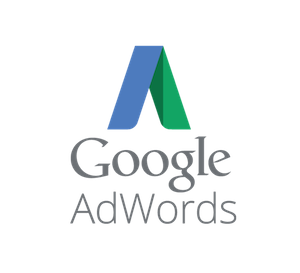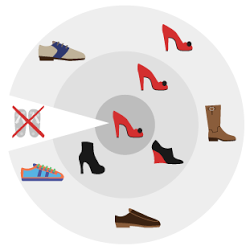
Choosing the right keywords to connect with customers
For your ads to appear when searching for products or services like those offered, you should choose keywords similar to the words or phrases that can be used to make searches. When a user uses terms similar to your keywords and ad text search, this may appear near search results shown.
How you can choose the right keywords? In this short video offered 5 simple tips for choosing good keywords.
We recommend that you organize your campaigns and ad groups into categories or for the products and services that will announce topics. Within each ad group, you must choose keywords and create specifically related to each of these issues yet.
Answer these questions to start creating a list of keywords to one of your ad groups words:
1. What is the theme of your ad group?
Suppose you have a company selling retail footwear and wants to create a campaign for “sport shoes”. You can split the campaign into ad groups for different types of sports shoes, such as “basketball shoes for children” and “soccer shoes for men”.
2. What words or phrases could be used to search for products or services related to the theme of your ad group?
This is the first thing that should be considered when creating the list of keywords in your ad group.
3. Do you need help to choose new keywords?
If so, use the Keyword Planner to get keyword ideas and traffic estimates words. The Keyword Planner is like a workshop where you can create new campaigns for the Search Network or expand existing ones. You can search for keyword ideas and ad groups, check the performance of a list of keywords and even create a list of keywords combined multiplying several lists of terms. The steps to add keywords to an ad group vary depending on the type of campaign. If you are not sure what type of campaign you use, click the Campaigns tab, select the campaign you want to check and search for “Type” under his name.
better define the keywords according to your objectives and your budget
To make the most of your budget, you can enlarge or reduce potential audience of your ad relevant to a particular keyword.
For example, you can make your ad to anyone using a search term containing that keyword in any order, and possibly accompanied by other terms are displayed. You can also control more precisely when the ad is displayed. For example, the ad could appear only when a user searches for that keyword followed or preceded by other terms.
You can perform this operation “campaigns Network only Search” or “Search Network with Display Select” options using keyword matching.
Select the option that best describes when you want your ads to appear.
I want to get maximum coverage for my ads and appear to look similar terms to my keywords
You can use the broad match option for your keywords. With this type of agreement, the ad can show if a search term that contains your keywords in any order, and possibly along with other terms used. The ads can also be displayed when looking for slight variations of your keywords, including misspellings, synonyms, related searches and other variants. Broad match is the default matching option, so you do not have to configure anything in your account to use. Keep the default broad match is a good choice if you do not want to spend too much time building keyword lists and want to get the maximum possible volume of ad traffic.
broad match keyword word: ladies footwear Ads can appear in search results of these queries: buy women’s shoes ladies shoes womens shoes womens dress shoes womens shoes red shoes womens buy

I want to get more accurate coverage and for my ads to appear only to find my keyword alone or followed or preceded by other terms
You can use the phrase match option for these keywords. That way, your ad will only appear when the search term used include the keyword as entered in the AdWords. Also appear when a user searches for a slight variation of keywords matching set phrase, as variants with misspellings, forms of singular and plural or with different emphasis, acronyms, words with common root (as book and library) and abbreviations . Therefore, it is not necessary to separately add slight variations as keywords. If you use the phrase match, your ad will appear if you search your keyword followed or preceded by other terms. This can help you reach more customers, while offers more precise control. To use the phrase match option, you must type the whole keyword in quotation marks (p. Eg., “Keyword”).
If your match keyword phrase is “high heels” Your ads can appear when looking for: buy high heels high heels high heels Your ads will not appear when you search: buy stilettos heels heels

I want to get coverage as accurate as possible and for my ads to appear only when looking exactly my keyword without other terms
You can use the exact match option for these keywords. This is the most precise matching option, so we recommend using it if you know exactly the search terms you want to trigger the presentation of your ads. With this type of agreement, the ads can only show when a user searches for that keyword exactly without any other terms. They also appear when a user searches for slight variations in the key exact match, as variants with misspellings, singular and plural forms or with different emphasis, acronyms, words with common root (as book and library) and abbreviations word. Therefore, it is not necessary to separately add slight variations as keywords. Note that the exact match option is also the match type keywords more restrictive. If you use only exact match keywords in your ad group, these could be shown to customers with limited frequency. To add a keyword as an exact match, you must type the entire expression in brackets, eg [keyword].
If your key word is exact match: [red heels]
Your ads can appear when looking: red heels
Your ads will not appear when looking for: buy red shoes woman heels black heels red heels needle

How can you tell if you have chosen the correct match type? In the following guide of this series, we’ll show you how to examine the performance of your keywords and determine whether to make any changes to match type. Keep up the following guide!
Forward: add types of keyword matches to an ad group
If you are using broad match, you do not need to do anything, because that is the default.
The types of keyword matching are available only with the types of campaign “Network only Search” or “Search Network with Display Select”.
1. Follow the instructions above to add keywords to your ad group. 2. When you enter your new keyword, enclose it in the correct signs as follows: – To use phrase match, type the keyword in quotation marks (eg “match keyword phrase”..). – To use exact match, type the keyword between brackets (eg, [exact match keyword] 3. Save your new keywords by following the instructions above….
Identify the search terms that do not want to trigger the presentation of your ads
If you only want to pay for clicks on your ads that translate into an actual transaction, once you start running, you can use AdWords for search terms that are activating the presentation of your ads (we’ll show you how to do the following guide). If your ads are displayed on searches that are not valuable, you can add those terms as negative keywords. Thanks to negative keywords, your ads to users who include those words or phrases in their searches are not displayed.
For example, if you advertise women’s footwear, but does not sell shoes, sandals can add as a negative keyword. That way, your ads users that include the term “shoes” in the search are displayed.

For the best results, we recommend including at least three negative keywords for each ad group. Once you start running your ads, you can periodically check the search terms report (discussed in the next guide) to identify new search terms that might interest you add them as negative keywords.
Think of the keywords in your ad group. What other words or phrases usually associated with these keywords, but do not correspond exactly to what you offer?
Suppose you have an optical. You can prevent your ad to appear when looking terms such as lenses and lens laboratory microscope or visit pages related to those terms, since it most likely users to perform these searches are not interested in buying a pair of glasses. Therefore, you could add microscope and laboratory as negative keywords.
Forward: add negative campaign or ad group keywords
Ready! He has finished customizing your AdWords campaign. The ads usually take about 24 hours to be reviewed and start appearing. Meanwhile, we will explain the operation of AdWords billing so you know how you will be charged once users start clicking on your ads.
